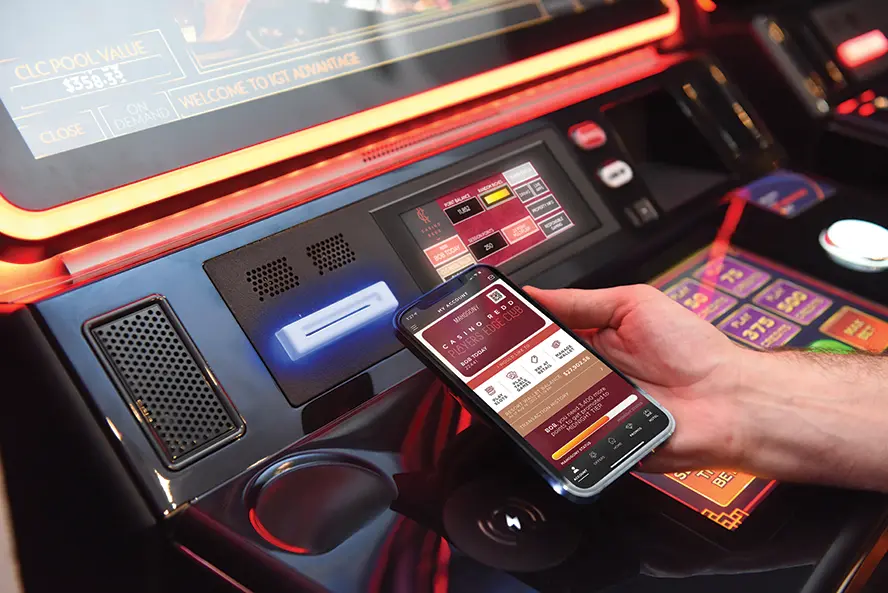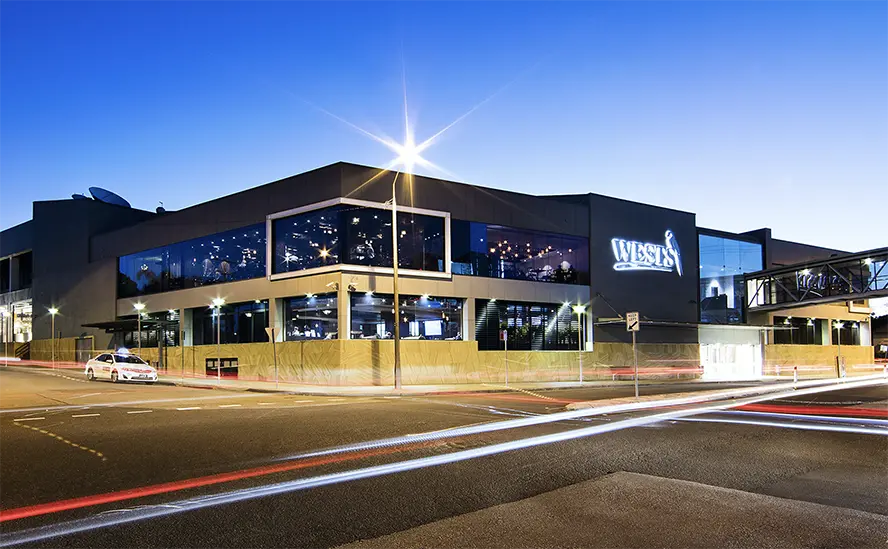With mandatory cashless gaming now a hot topic in the Australian state of New South Wales amid moves to make the state’s 90,000 EGMs fully cashless within five years, IAG takes a closer look at the implementation of such technology across Asia-Pacific.
 The world is going cashless.
The world is going cashless.
Buoyed by the ease of tap and go technology and with the COVID-19 pandemic having accelerated widespread acceptance of contactless payment methods, countries across the globe are now making the move towards fully cashless societies. Sweden – which saw the percentage of people using cash fall from 39% in 2010 to 9% in 2020 according to data from its central bank – is even tipped to become the first of these nations, set to go fully cashless before the end of this year.
A recent report by PricewaterhouseCoopers (PwC) estimates global cashless payments will increase by more than 80% from around 1 trillion in 2020 to 1.9 trillion in 2025 and close to 3 trillion by 2030. Asia-Pacific is also tipped to lead the way, with cashless transaction volume to grow by 109% through 2025 and then by a further 76% percent between 2025 and 2030, followed by Africa, Europe, LatAm and North America.
 In the gaming space, however, adoption of cashless technology across Asia-Pacific has typically lagged behind other regions like the United States, where regulators in jurisdictions like Nevada have ranked among the industry’s earliest adopters (in January 2022 the Nevada Gaming Commission even approved a regulatory amendment allowing players to remotely verify their identity and fund cashless wagering accounts without having to physically enter a casino).
In the gaming space, however, adoption of cashless technology across Asia-Pacific has typically lagged behind other regions like the United States, where regulators in jurisdictions like Nevada have ranked among the industry’s earliest adopters (in January 2022 the Nevada Gaming Commission even approved a regulatory amendment allowing players to remotely verify their identity and fund cashless wagering accounts without having to physically enter a casino).
But this discrepancy might not last too much longer. Thanks to the recent inquiries and Royal Commissions that have brought Australia’s leading casino operators Crown Resorts and Star Entertainment Group to their knees, regulators who were once reluctant to introduce cashless gaming to Australian gaming floors are now eyeing the technology as a key weapon in combatting the money laundering issues that have plagued the local industry.
 Moves first got underway in May 2021, when both Crown and Star reached an agreement with the NSW Independent Liquor and Gaming Authority to transition to fully cashless, albeit with no definitive timeline put in place.
Moves first got underway in May 2021, when both Crown and Star reached an agreement with the NSW Independent Liquor and Gaming Authority to transition to fully cashless, albeit with no definitive timeline put in place.
The issue has become far more pressing in recent months, however, following the release of a NSW Crime Commission report which found that billions of dollars of dirty money is being funneled through the state’s pubs and clubs each year. With NSW home to around 90,000 poker machines – Nevada is the only single jurisdiction globally with more – and pubs and clubs housing the vast majority of those, the report concluded that allowing cash to continue to be used in EGMs makes it too easy for criminals to gamble with illegally gained money. In response, it called for the introduction of a mandatory cashless gaming system as a key recommendation to minimize EGM-related money laundering within pubs and clubs.
 “It is a deeply concerning peculiarity that, in the largely cashless digital economy in which we live, gambling in NSW pubs and clubs remains an AU$95 billion (US$65 billion) a year information black hole. Clearly, that cannot be allowed to continue,” said NSW Crime Commissioner Michael Barnes.
“It is a deeply concerning peculiarity that, in the largely cashless digital economy in which we live, gambling in NSW pubs and clubs remains an AU$95 billion (US$65 billion) a year information black hole. Clearly, that cannot be allowed to continue,” said NSW Crime Commissioner Michael Barnes.
The government has been quick to respond. In November, NSW Premier Dominic Perrottet announced mandatory cashless gaming as a key policy issue ahead of the upcoming state election this March.
In early February, the Perrottet government released its full policy outline, including plans to ensure all poker machines in NSW go cashless within five years and the removal of 2,000 machines from circulation, plus various grants and loans to assist pubs and clubs in transitioning to the new technology.
 Somewhat surprisingly given that industry suppliers have been busily developing cashless gaming technology for years now, the government’s cashless gaming push found a vocal opponent in the state’s foremost clubs lobby group, ClubsNSW, with CEO Josh Landis claiming such a move would treat ordinary players like criminals.
Somewhat surprisingly given that industry suppliers have been busily developing cashless gaming technology for years now, the government’s cashless gaming push found a vocal opponent in the state’s foremost clubs lobby group, ClubsNSW, with CEO Josh Landis claiming such a move would treat ordinary players like criminals.
Sadly for Landis, his three-year tenure as ClubsNSW boss came to an abrupt end in late January when he was sacked for linking Perrottet’s cashless gaming agenda to his Catholic faith during an interview. The Lobby group has gone decidedly quiet on the issue since.
Yet despite that imbroglio and claims by some renowned anti-gambling media outlets that the industry is actively working to block the introduction of cashless gaming technology, nothing could be further from the truth, with key suppliers having lobbied government for trials long before the issue became trendy.

Two of those suppliers, IGT and Aristocrat, are now in the process of doing just that, with IGT in the process of launching a full-cashless trial at Club York in the Sydney CBD and Aristocrat last year launching the state’s first cashless gaming trial at Wests Newcastle.
The Club York trial, according to IGT’s Director – Systems Product & Sales, Asia-Pacific, John van Waard, will include both qualitative and quantitative research including entry and exit surveys on player experience, player spend both pre- and post-trial, and various other data.
“We’ve gone about it the right way – we’re instituting the solution across the entire venue, not just a subset of the venue, so the evaluation can be as close to a real player experience as possible,” Van Waard explains.
Meanwhile, Aristocrat’s CEO of Gaming and Chief Transformation Officer, Mitchell Bowen, said the company’s Wests Newcastle trial was aimed at finding ways to help patrons manage their play via the inclusion of additional gameplay tools.
“Aristocrat believes that enabling cashless payment solutions is an innovation that may help enhance the long-term sustainability and vibrancy of our industry,” Bowen said when the project was first announced.

“Aristocrat will continue to bring forward innovations that are practical, enhance customer choice and have the potential to help reduce problem gambling without unduly impacting choice and amenity for the majority of recreational players. We look forward to learning from the results of the trial.”
While both companies are at the forefront of cashless gaming technology globally, Van Waard warns that the success of cashless gaming in Australia will depend on how the product is introduced to the market.
“If it’s full steam ahead with no phasing period and we go 100% cashless, there is going to be a pretty big impact because people don’t like change and that abrupt a change won’t be good for the industry,” he tells IAG.
“But if we phase it in, provide players options, tell them they can continue doing what they’re doing or start to change to this new technology, then people will adjust. I mean, there was uproar when they were going to remove coins. They thought it would destroy their business but what venue has coins in it today?”
Asked why some factions of the industry might be reluctant, Van Waard adds, “I think it comes from a place of fear and uncertainty which is a common place to start with any change. People fear change. But I think the industry is coming around based on our involvement in it. I mean, in certain forms, cashless has existed in pubs and clubs for a very long time, with TITO introduced in the 1990s and card-based cash very shortly thereafter.

“The funds transfer mid-session is done cashless already, so it’s just that piece of starting the gaming session where cash currently has to be brought into the business.”
Craig Libson is CEO of US-based digital wallet and payment solutions company Cash2Go Inc, which launched in Mexico in 2014, has since expanded across the United States and is now in talks with stakeholders across Asia-Pacific, including in Australia and the Philippines.
The company specializes in providing a cashless gaming option that not only provides players with a means of transferring funds across multiple accounts at no cost but also doubles as a loyalty card while offering full KYC approval.
“What we are providing is a brand new card for the operator, and we are encouraging the customer to use that card because they get loyalty points on the casino platform, and for the operator it doesn’t cost anything to move the money back and forth, plus there is the reduced fraud risk and access to a lot of data,” Libson explains.
“This is the solution that Australia needs really, and the beauty of our platform is that it was developed in a cashless gaming environment from scratch.”
 Cash2Go is already in talks with Australian banks and potential operating partners, Libson continues, but says sitting down with local regulators remains a key short-term goal given recent events.
Cash2Go is already in talks with Australian banks and potential operating partners, Libson continues, but says sitting down with local regulators remains a key short-term goal given recent events.
“We want to show them that this is what you can do with cashless,” he says, “that this is what you can accomplish and to see if we can educate them a little bit about what you need to do, because it seems like they are taking some draconian measures out of panic.
“We’ve had this experience for years where people, when they don’t understand what actually happens under the hood, make their own assumptions on this technology, and often it’s wrong, so often we have to unwind their thinking.
“Then when they see what we can do, the flexibility and the controls, they realize [cashless payment technology] is actually much more powerful than they imagined and can be done much more effectively.”
 This raises one more barrier to the introduction of cashless: not all technology is created equal. In a special “market outlook” report recently published by Japanese transaction technologies firm JCM Global, the company’s Product Manager – Systems, Chris Blevens, predicted that more casinos will adopt cashless payment technology in 2023 but added, “Cashless wallets will need to overcome a hurdle for widespread customer adoption: inconsistency. Today’s cashless wallets have several implementations that look and feel completely different from each other, dependent on which casino system and financial payment provider the casino is using.
This raises one more barrier to the introduction of cashless: not all technology is created equal. In a special “market outlook” report recently published by Japanese transaction technologies firm JCM Global, the company’s Product Manager – Systems, Chris Blevens, predicted that more casinos will adopt cashless payment technology in 2023 but added, “Cashless wallets will need to overcome a hurdle for widespread customer adoption: inconsistency. Today’s cashless wallets have several implementations that look and feel completely different from each other, dependent on which casino system and financial payment provider the casino is using.
“Guests right now need to manage multiple apps, accounts and workflows between different casinos, but in the future, I think the apps will become more uniform and make it easier for guests to enroll.”

So what does this mean for the broader implementation of cashless payments on casino floors around the region?
Ken Jolly, Vice President and Managing Director, Asia for leading supplier Light & Wonder, says he expects not only NSW gaming floors but all of Australia to be fully cashless within five years, led by Crown and Star, and that regulators across the region will quickly follow. To test that theory, IAG contacted regulators in the Philippines, Macau and Singapore to gauge their appetite for cashless in the future.
In response, Singapore’s Gambling Regulatory Authority said the sovereign state’s casino regulatory framework “does not prohibit cashless gaming technology” and that implementation of such technology was up to the operators – Marina Bay Sands and Resorts World Sentosa. Both IRs chose not to comment when contacted by IAG.
Philippines gaming regulator PAGCOR said it does not oppose the use of cashless gaming technologies for land-based casinos, noting that, “Cashless technology, which applies to cashless slot machines, offers utmost convenience to casino players as amounts are just deducted from the player’s slot account (via a card-based membership system) as a result of electronic gaming machine play.”

It also noted that PAGCOR regulations in regard to domestic online gaming operations allow for the use of integrated payment gateway channels for PAGCOR-approved remote gaming platforms (RGPs), provided that funding and withdrawal channels are compliant with Anti-Money Laundering Council rules and are approved or regulated by the Banko Sentral Ng Pilipinas.
These integrated payment gateways had, the regulator explained, increased the competence and efficiency of the services of PAGCOR-approved RGPs, improved the convenience among players and increased player turnover.

Macau’s DICJ, which has traditionally been reluctant to entertain cashless gaming, didn’t respond to questions, but sources say the regulator may be reconsidering that stance given the recent controversy around fallen junket promotors Suncity Group and Tak Chun Group, a U-turn that might allow it to better track the source of gambling funds in future.
But the real benefit of cashless, says Van Waard, is its ability to provide a simpler, more transparent process for all involved, be they player, operator or regulator.
“From an AML perspective it’s just about bullet proof,” he says.
“I mean, anytime funds come in they are coming in from an identified bank account so the traceability is improved infinitely. It’s impossible to bring money in without understanding the source, so it’s coming from a legitimate financial institution.

“That aside, one of the things we are very actively trying to promote as an Asia-Pacific business is bringing fun back into gaming. The fun aspect seems to have disappeared because most games are targeted at the same player type.
“Anyone who has been to Las Vegas recently would have noticed the difference in gaming environments. It’s so much more fun in Vegas and even in some of the Asian IRs compared to what’s in Australia, because regulation has really restricted us in terms of gaming product.
“I think what cashless gaming allows us to do is attract the casual punter back, because we’ve ousted them out of the market in terms of product.
“Then in terms of payment choice, there are people like me who walk around with no cash and see a machine and decide it’s all too hard to go and get cash. But give me an option to access my cash and I’ll have a punt.
“I suppose what NSW is doing specifically with their sandbox trial is evaluating the impact on harm, and those trials are underway. But again, when you look at the trend toward people’s preference on payments, [cashless] is going to be the direction everything heads anyway.”




























